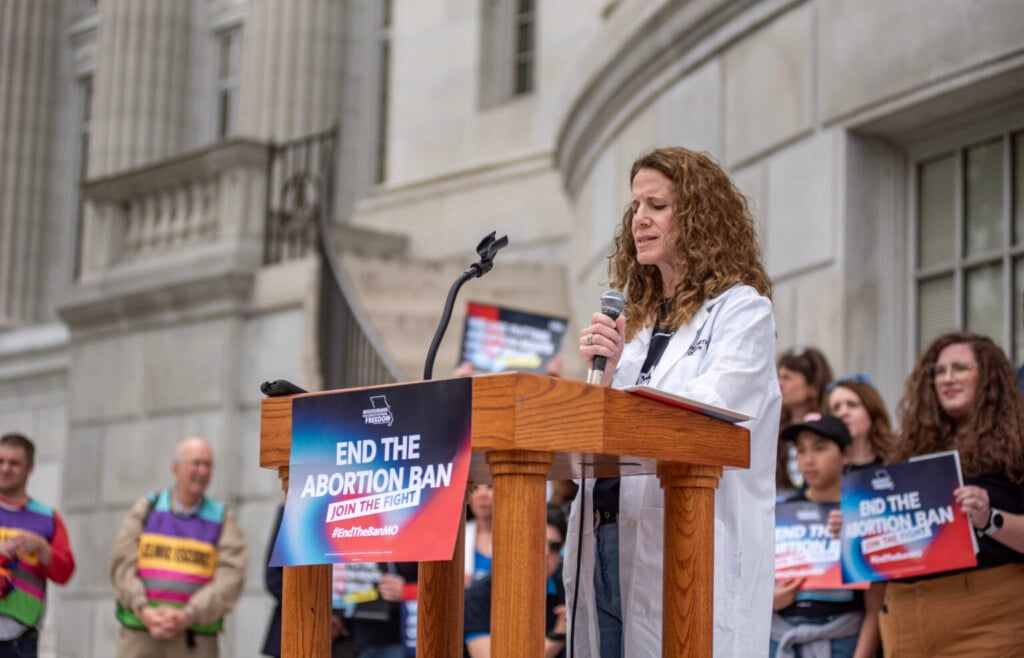Poetry Slam

A couple of weeks ago, the Strip heard from a woman named Gabriele Otto, who works at the Kansas City Public Library’s Southeast Branch. She wanted this meat patty to know that on April 29, the poet Amiri Baraka would be coming to our fair city. Partly funded by a grant from the National Endowment of the Humanities, Baraka is scheduled to give a free presentation at the University of Missouri-Kansas City’s library as part of an ongoing hundredth-birthday party for Kansas-bred poet Langston Hughes.
Yikes! Almost as soon as that hot potato arrived in our in-box, this porterhouse of provocation fired back a reply to Otto, asking: Who had made the decision to bring Baraka to town?
See, the Strip remembered the headlines Baraka recently made in New Jersey. Here’s a recap:
For decades, the man once known as LeRoi Jones had made a reputation as an angry poet with a tendency to lay the smackdown on white people, gay people and Jews. But his harsh attacks hadn’t hurt his reputation too much, and plenty of folks considered him one of the most influential black poets. Then, in 2002, the governor of New Jersey, James McGreevey, made Baraka the state’s second-ever poet laureate, a position that was supposed to last two years and come with a $10,000 stipend. In October of that year, Baraka gave his first public reading as the state’s official wordslinger.
He used the event to recite a piece he’d written about a year earlier, in response to the September 11 attacks. “Somebody Blew up America” was belligerent and disjointed, like a lot of Baraka’s poetry, but it was the four-line stanza near the end that set off a firestorm:
Who knew the World Trade Center was gonna get bombed
Who told 4,000 Israeli workers at the Twin Towers
To stay home that day
Why did Sharon stay away?
It was bad enough that he’d tossed in a bullshit Internet rumor about Jews staying away from the World Trade Center, supposedly proving that Israel was really behind the attacks. But Baraka already had a history of tweaking the Chosen Race. The Anti-Defamation League threw a fit, McGreevey said he regretted appointing Baraka, and New Jersey legislators went into seizures when they realized there was no way to fire a poet laureate. Eventually, last July, the lawmakers abolished the government post entirely in order to rid themselves of Baraka. The poet, meanwhile, has been unrepentant, saying that the ADL was out to get him.
Since the controversy, Baraka has remained radioactive — his appearance last year turned Yale University upside down, with Jewish students complaining loudly and other students defending Baraka just as strongly.
The last thing the Strip would advocate is silencing a controversial writer — Baraka’s right to spew bad poetry is sacrosanct in this T-bone’s book. And the Strip thought its question to librarian Otto was a simple one — who made the decision to spend public money to bring Baraka to Kansas City, a move that would likely anger members of the local gay and Jewish communities?
Otto, however, was surprisingly snooty and vague about that.
After some pressing, she revealed that the University of Kansas Continuing Education Department had been involved and referred this flank steak to the other sponsors named on fliers for the event, including the local Southern Christian Leadership Council, the Black United Front and UMKC’s Minority Student Affairs Office.
So the Strip started making phone calls — first to JoAnn Smith, KU’s dean of continuing education. To this cutlet’s surprise, Smith flat-out denied that her department had anything to do with inviting Baraka. “In fact, we’re asking that our name be removed from the event’s materials,” she said.
Huh? The Strip next tried the SCLC, the organization best known for putting on an annual Dr. Martin Luther King Jr. celebration. Most of its board members are African-American, but not all of them. A few, in fact, are Jewish, and at least one of them, Judy Hellman, was peeved. She told the Strip that the SCLC’s chairman, the Reverend Nelson Thompson, decided to help sponsor Baraka’s talk without consulting the rest of the board.
Thompson himself admits as much — but he says he agreed to help pay for Baraka’s appearance after Otto told him the decision to invite Baraka had already been made. Thompson says now — having read samples that Hellman provided of Baraka’s more controversial verses — that the full SCLC board would not have endorsed the program.
The Strip then approached Ajamu Webster, president of the Black United Front. He, too, says his organization agreed to help pay for Baraka’s visit after Otto told him the decision to bring the poet had already been made.
The same went for Catherine Kironde, who works for UMKC’s Minority Student Affairs Office. She says that when Otto approached her, she didn’t know about Baraka’s controversial past. “I don’t know if anyone really thought of the Jewish angle. I know I didn’t,” she tells the Strip.
So who actually made the decision to bring Baraka?
Two of Otto’s colleagues at Kansas City’s public library, Jami Schaefer and Margaret Clark, suggested that Otto had met with KU’s Hall Center for the Humanities. But the center’s director, Victor Bailey, denies it.
Bailey suggested other KU sources who might have been responsible for the invitation, including an expert on Baraka, William Harris. So the Strip got the prof on the phone.
“I had nothing to do with that,” Harris says. The professor, editor of The LeRoi Jones/Amiri Baraka Reader, says he still has a lot of admiration for Baraka’s total body of work but acknowledges that “Somebody Blew up America” troubles him.
“These lines — they can’t be true. It doesn’t make any rational sense,” he says. “But I think what happened is that he’s in a very political world, and he just threw that into the poem. I think it’s too bad.
“There’s a long, complicated history with Baraka. People have brought up poems from the 1960s with lines that are indeed anti-Semitic. They are. But they grow out of a certain moment. He renounced that, but he hasn’t been forgiven for that. Wherever he goes, this dogs him.”
A UMKC source suggested that this beefsteak might get closer to solving the mystery by trying Robert Stewart, editor of the campus literary journal, New Letters, which has printed Baraka’s poems in the past. But Stewart says he also had nothing to do with inviting Baraka. Like Harris, Stewart says he has long admired Baraka’s writing but can’t defend “Somebody Blew up America.”
“I can’t understand it well enough to defend it,” he says. “The poem is somewhat incoherent, which adds to the problem of it. It leaves him open to whatever reaction people are going to have. It’s a shame.”
Like most of the others, Stewart feels that it’s important not to censor a controversial dude like Baraka. But is spending public money to bring him here the best way to celebrate Langston Hughes? “Apparently it isn’t, because we’re not thinking anything positive here,” Stewart says. “I happen to think that Baraka has done a tremendous amount of good work over the years. I hate to see this happen to him over this one event. It might be deserved. It might not.”
Finally, a defensive Otto relented and admitted that she herself had submitted Baraka’s name to a committee of folks who meet at the city library’s Southeast Branch. Sheesh, why didn’t ya just say so to begin with?
One of the people on that committee is Laura Partridge, a program director for the American Friends Service Committee who says she’s active in local theater.
“I’m 56 years old, an African-American woman. I’d never heard any of the comments about [Baraka] being anti-Semitic,” she says. “We have so few heroes as it is. He’s getting older. Maybe he said something and didn’t say it right.”
What’s that? Old age promotes anti-Semitism? This beef patty hadn’t heard that one before.
Well, we can only hope that on April 29, Baraka’s advanced age — he’s 69 — won’t trip him up when he recites his work here. Perhaps he’ll even give us a live rendition of this classic nugget from the 1960s:
You cant steal nothin from a white man, he’s already stole it he owes you anything you want, even his life. All the stores will open if you say the magic words. The magic words are: Up against the wall mother fucker this is a stick up!
Wheee! That’s some good counterculture mind-ganja, hepcat.




